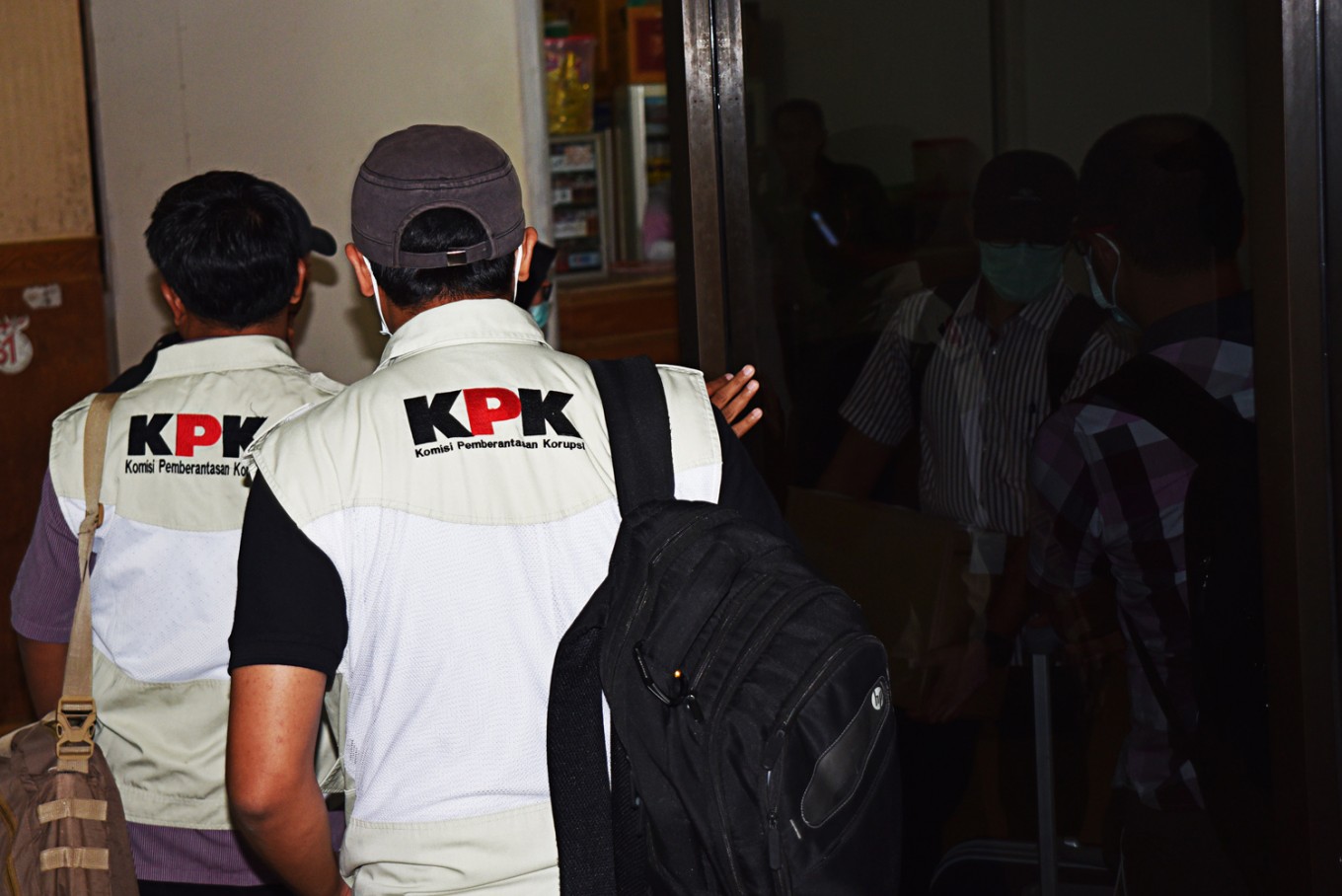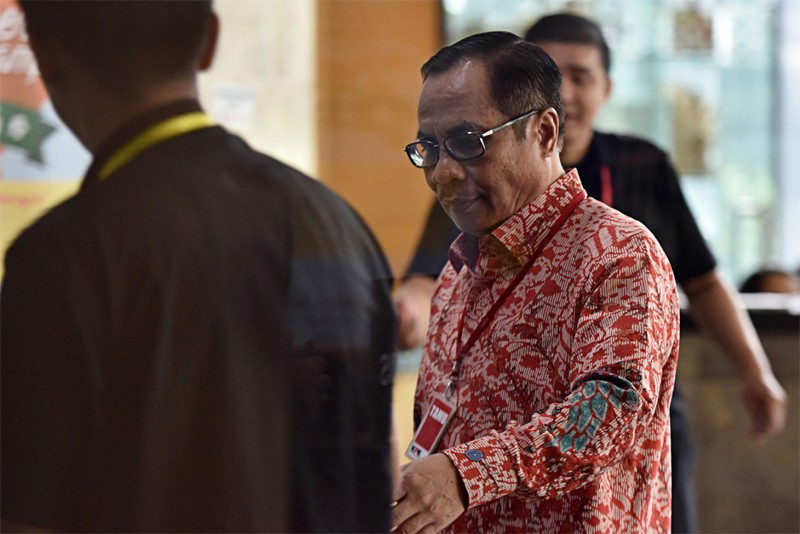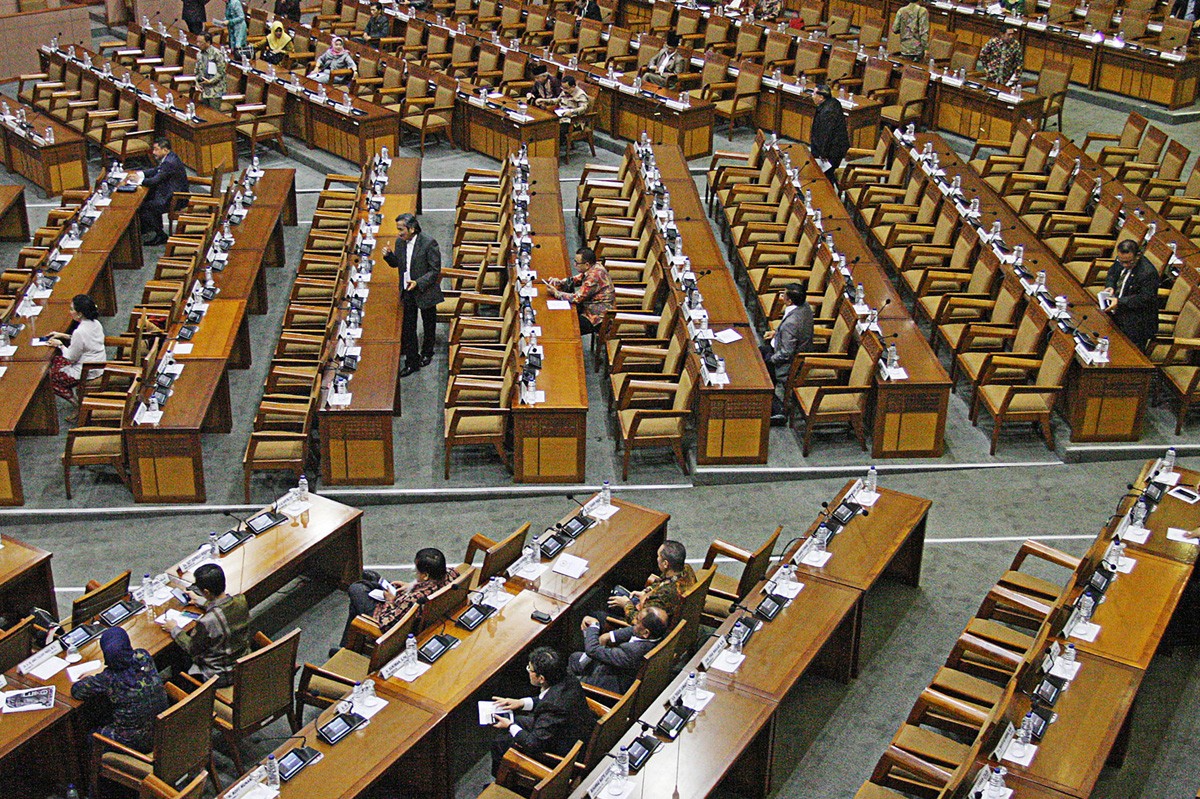Popular Reads
Top Results
Can't find what you're looking for?
View all search resultsPopular Reads
Top Results
Can't find what you're looking for?
View all search resultsHouse seen as most corrupt institution: TII
Change text size
Gift Premium Articles
to Anyone
J
ust two days before the Jakarta Corruption Court begins the trial of the high-profile e-KTP graft case that reportedly implicates a number of legislators, the latest global corruption report by Transparency International Indonesia (TII) has again listed the House of Representatives as the institution judged by Indonesians to be the most corrupt.
According to TII’s 2017 Global Corruption Barometer, released on Tuesday, the House has improved its image, with the percentage of respondents saying it was a dirty institution down from 89 percent in 2013 to 54 percent last year.
However, it has not done enough to escape from the dubious distinction of “most corrupt institution,” as other public service providers surveyed by TII still fared better than the House. Government officials came in second with 50 percent, followed by the regional councils with 47 percent.
(Read also: Most corruption involves civil servants: ICW)
TII conducted the survey between July 2015 to January 2017. The organization surveyed 1,000 respondents ranging between the ages of 18 and 55 in 31 provinces via a direct or phone call interview.
The year 2013 was the last time the TII conducted a public perception survey on public service providers. The corruption perception index (CPI) released annually by the TII interviews experts and businesspeople.
In accordance with the findings, the TII called on political parties to conduct reform and improve their performance at the House and in the regional councils.
“Even though the legislators have developed initiatives to prevent corruption, these are overlooked by the public,” said Wawan Suyatmiko, head of research management at TII.
 Under investigation: Investigators from the Corruption Eradication Commission (KPK) prepare to search the Papua governor's office in Jakarta on Feb. 2 in its investigation into a graft case related to the Kemiri-Depapre road construction project. (Antara/Indrayadi TH)
Under investigation: Investigators from the Corruption Eradication Commission (KPK) prepare to search the Papua governor's office in Jakarta on Feb. 2 in its investigation into a graft case related to the Kemiri-Depapre road construction project. (Antara/Indrayadi TH)
He said reports of alleged corruption by legislators still made headlines in national media and these headlines had dealt a blow to the House’s image.
In 2013, the Corruption Eradication Commission (KPK) opened an investigation into irregularities in the procurement of electronic identity cards (E-KTPs).
 The Home Ministry’s former director general for population and civil registration Irman (center) gets ready to attend an interrogation session at the Corruption Eradication Commission in Jakarta on Nov. 8, 2016 over alleged corruption surrounding the procurement of electronic identification (e-KTP) cards.(Antara/Wahyu Putro A)
The Home Ministry’s former director general for population and civil registration Irman (center) gets ready to attend an interrogation session at the Corruption Eradication Commission in Jakarta on Nov. 8, 2016 over alleged corruption surrounding the procurement of electronic identification (e-KTP) cards.(Antara/Wahyu Putro A)
The antigraft body has already named two suspects in the case, namely Irman, a former Home Ministry director general for population and civil registration, and Sugiharto, a former population administration information management director for the directorate general.
The KPK has questioned around 200 witnesses, including House Speaker Setya Novanto and other legislators, regarding the Rp 5.9 trillion (US$443 million) project, which caused Rp 2.3 trillion in state losses.
Febri Diansyah, a KPK spokesperson, said that 14 House members had returned money allegedly used to bribe them during the deliberation of the project.
 Corruption Eradication Commission (KPK) Deputy chairpersons Basaria Panjaitan (right) and Laode M Syarif (center) as well as KPK spokesman Febri Diansyah (left) deliver a press conference on Jan. 26.(Antara/Wahyu Putro A)
Corruption Eradication Commission (KPK) Deputy chairpersons Basaria Panjaitan (right) and Laode M Syarif (center) as well as KPK spokesman Febri Diansyah (left) deliver a press conference on Jan. 26.(Antara/Wahyu Putro A)
In the first hearing on Thursday, the prosecutors will read out the indictments against Irman and Sugiharto. They are expected to name the legislators who allegedly took the bribes.
Indonesian Democratic Party of Struggle (PDI-P) legislator Masinton Pasaribu said he took the TII’s report as a challenge for the House. “It is a challenge that the public perceives the House as corrupt,” he said.
He added, however, that government officials were actually more prone to corruption as they were the ones who spent the budgets approved by the House. (mrc)










